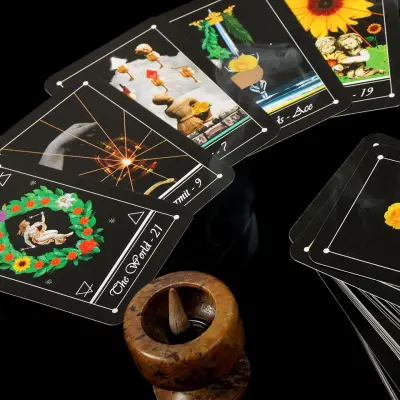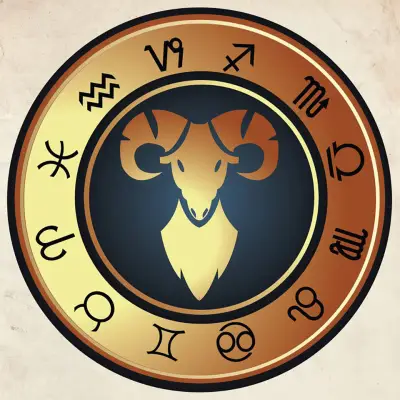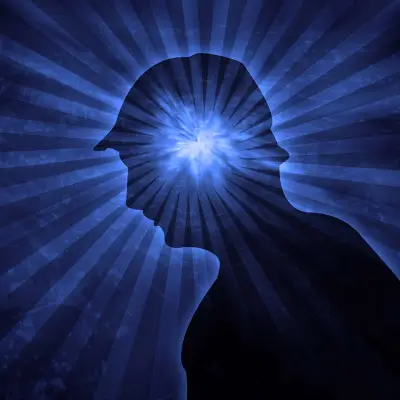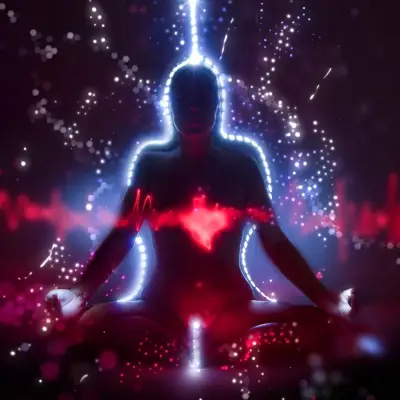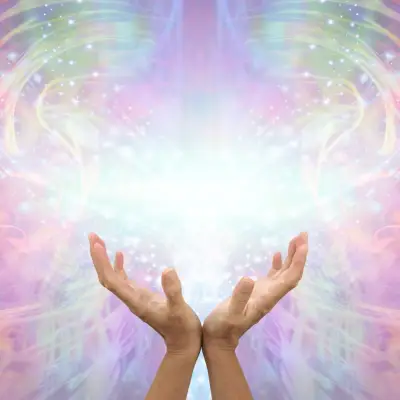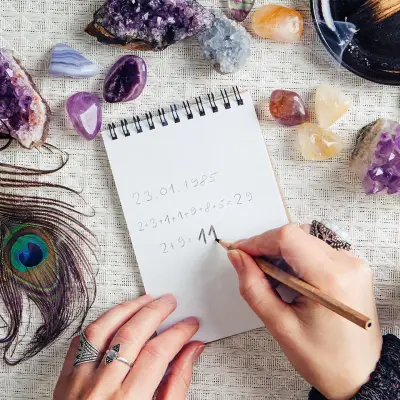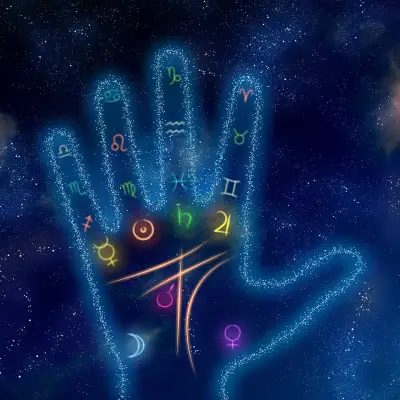Have you ever found yourself staring at the night sky, mesmerised by the moon's beauty, only to witness its light gradually dimming, leaving a shadow or taking on a mysterious red hue? If so, you've experienced the wonder of a lunar eclipse, a celestial event that has fascinated humans for millennia.
In this post, we'll explore the phenomenon of lunar eclipses, their spiritual significance, and the various superstitious beliefs associated with them.
Jump to:
How Does a Lunar Eclipse Occur?
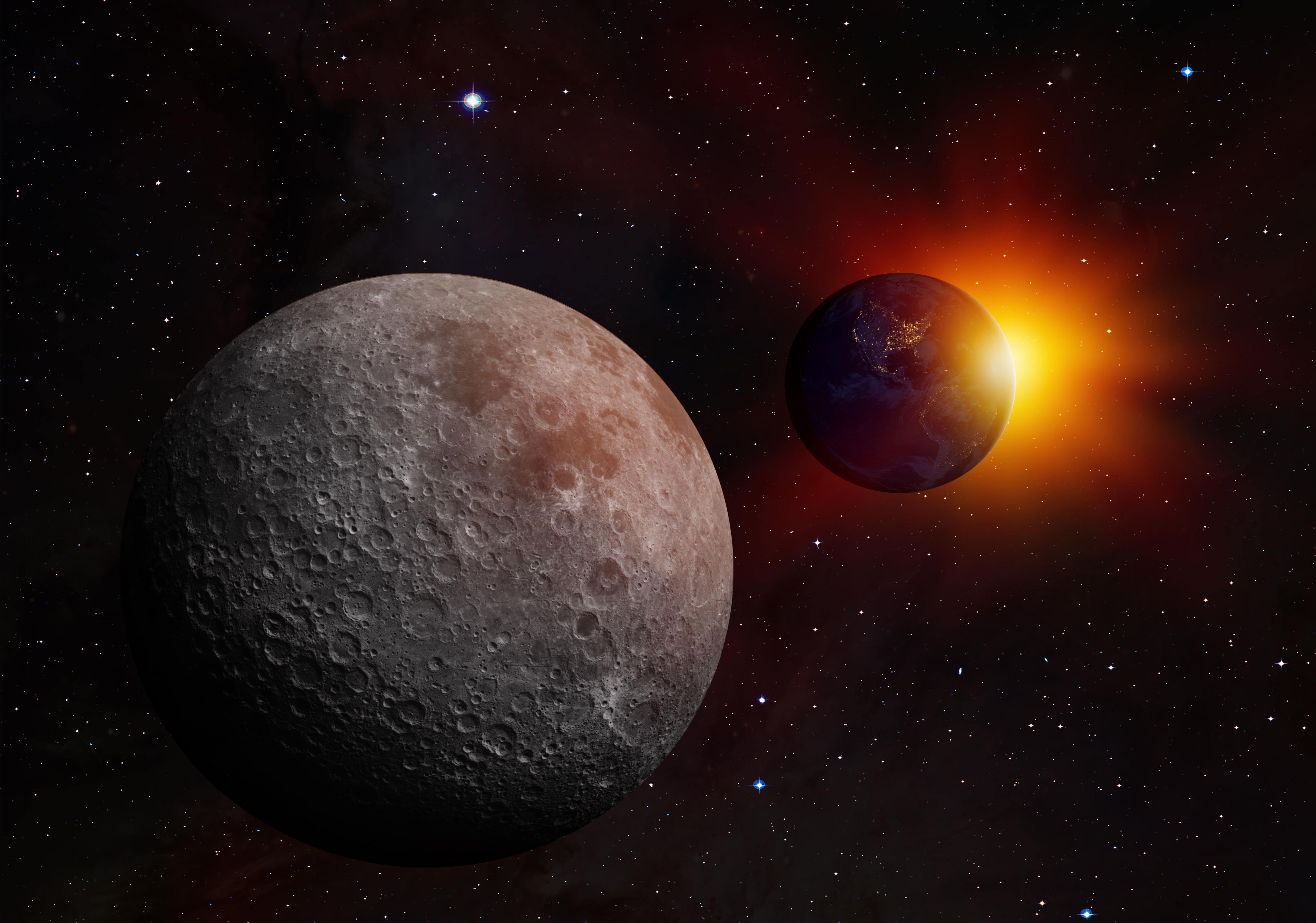
A lunar eclipse happens when the Earth positions itself directly between the sun and the moon, casting a shadow on the moon. This alignment can only occur during a full moon when the sun, Earth, and moon form a straight or nearly straight line in space.
Types of Lunar Eclipses
There are three main types of lunar eclipses: total, partial, and penumbral.
Total Lunar Eclipse: A Spectacular Sight
The total lunar eclipse is a breathtaking phenomenon that occurs when the moon, Earth, and sun align perfectly, allowing the Earth to cast a full shadow (umbra) over the moon. This alignment blocks direct sunlight from reaching the moon.
However, some light, refracted by the Earth's atmosphere, still manages to reach and illuminate the moon. This light undergoes a scattering process, removing shorter wavelengths and allowing longer wavelengths like red to pass through. It is this process that gives the moon a mesmerising red or copper colour during totality, hence the term "blood moon."
Viewing a total lunar eclipse is a remarkable experience. The moon's usual bright white hue transforms into deep reds and oranges, casting an eerie yet beautiful glow. This event can last up to several hours, with totality itself ranging from a few minutes to over an hour, depending on the specifics of the moon's path through the Earth's shadow.
Partial Lunar Eclipse: A Dance of Shadows
In a partial lunar eclipse, the alignment of the moon, Earth, and sun is not perfectly straight, resulting in only a part of the moon passing through the Earth's umbra. The part of the moon outside the umbra remains visible and illuminated by direct sunlight, creating a striking contrast between the darkened portion and the brightly lit section.
The extent of the darkening can vary significantly, from a small shadow on the moon's edge to almost complete coverage, leaving just a sliver of brightness.
Watching a partial lunar eclipse offers a visual demonstration of the Earth's curvature, as the shadow cast on the moon's surface is always round. This type of eclipse serves as a reminder of the celestial mechanics at play, offering a unique spectacle each time as the moon travels through different parts of the Earth's shadow.
Penumbral Lunar Eclipse: Subtle Yet Significant
The penumbral lunar eclipse is the most subtle of the three types, occurring when the moon passes through the penumbra or the outer part of the Earth's shadow. Unlike the umbra, which completely blocks direct sunlight, the penumbra only partially obscures the sun's rays.
As a result, the shadow cast on the moon is faint and can be challenging to notice without careful observation.
During a penumbral eclipse, the moon might exhibit a slight dimming or a soft shading effect across its surface rather than the dramatic transformation seen during a total or partial eclipse. Despite its subtlety, a penumbral lunar eclipse is a beautiful reminder of the ongoing dialogues between the Earth, moon, and sun. It highlights the precision of celestial movements and the intricate balance that governs the night sky.
Frequency of Lunar Eclipses
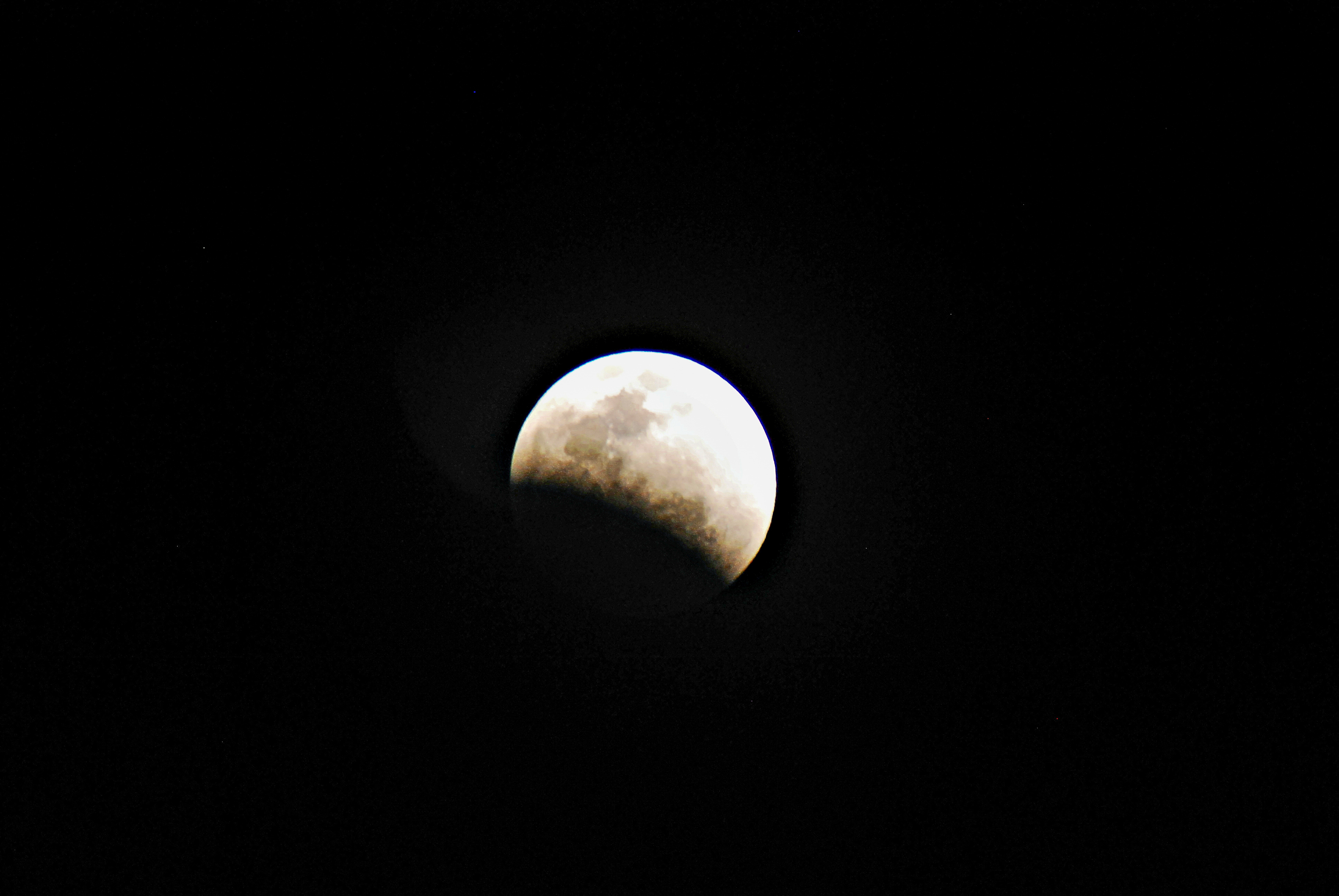
Lunar eclipses, in their various forms, are more common than you might think. On average, they happen two to four times a year. However, the visibility of these eclipses varies greatly depending on where you are on Earth.
How Long Do Lunar Eclipses Last?
The duration of a lunar eclipse can vary significantly. A total lunar eclipse, including the penumbral and partial phases, can last for several hours, with the total phase typically ranging from a few minutes to over an hour. The exact length depends on the moon's path through the Earth's shadow.
The Moon's Mystique: Spiritual and Superstitious Beliefs
The allure of the moon has captivated humanity since time as a source of spiritual and superstitious beliefs. Lunar eclipses, with their extraordinary visual spectacle, have particularly stood out as moments ripe with meaning and mystique, prompting a mix of interpretations and traditions across different cultures.
Spiritual Significance: A Portal to Inner Wisdom
Throughout history, lunar eclipses have been seen as potent symbols of inner transformation and renewal. In many spiritual traditions, these celestial events are considered powerful times for meditation, reflection, and the setting of intentions.
The unique energy of a lunar eclipse is believed to open a gateway to higher consciousness, offering an opportunity to release old, limiting beliefs and to connect with the deeper, more intuitive aspects of oneself. This can be a period of significant personal growth, where the alignment of the sun, Earth, and moon is mirrored by an alignment of your inner purpose and the universe's energies.
For many, lunar eclipses serve as a reminder of the impermanence of our current state and the possibilities of new beginnings. It's a time when the veil between the physical and spiritual worlds is considered thinner, making it easier to receive messages and guidance from the universe or the divine.
Embracing the energy of a lunar eclipse can lead to deep insights and heightened awareness, fostering a sense of unity with all creation and a deeper understanding of your place within it.
Superstitious Beliefs: Navigating Change and Transformation
In some cultures, eclipses are viewed with caution and thought to be harbingers of change or disruption. This perspective can lead to various practices aimed at protecting yourself from the supposed negative effects, such as the avoidance of important decisions or the use of charms and rituals to ward off bad luck.
Others perceive lunar eclipses as moments charged with positive, transformative energy. In these cultures, eclipses are times to actively release negative emotions, habits, or thoughts and to embrace positive change and renewal.
Rituals might include meditative practices, the cleansing of physical spaces, or the setting of new intentions. Such activities are believed to harness the special energy of the eclipse, encouraging personal growth and the manifestation of desires.
Whether viewed through a lens of caution or one of opportunity, the superstitious and spiritual significance attributed to lunar eclipses reflects humanity's enduring search for meaning in the cosmos. These events encourage us to pause and consider the larger forces at play in our lives and the universe, prompting reflection, respect, and a sense of wonder at the mysteries that surround us.
Eclipse Safety and Viewing Tips
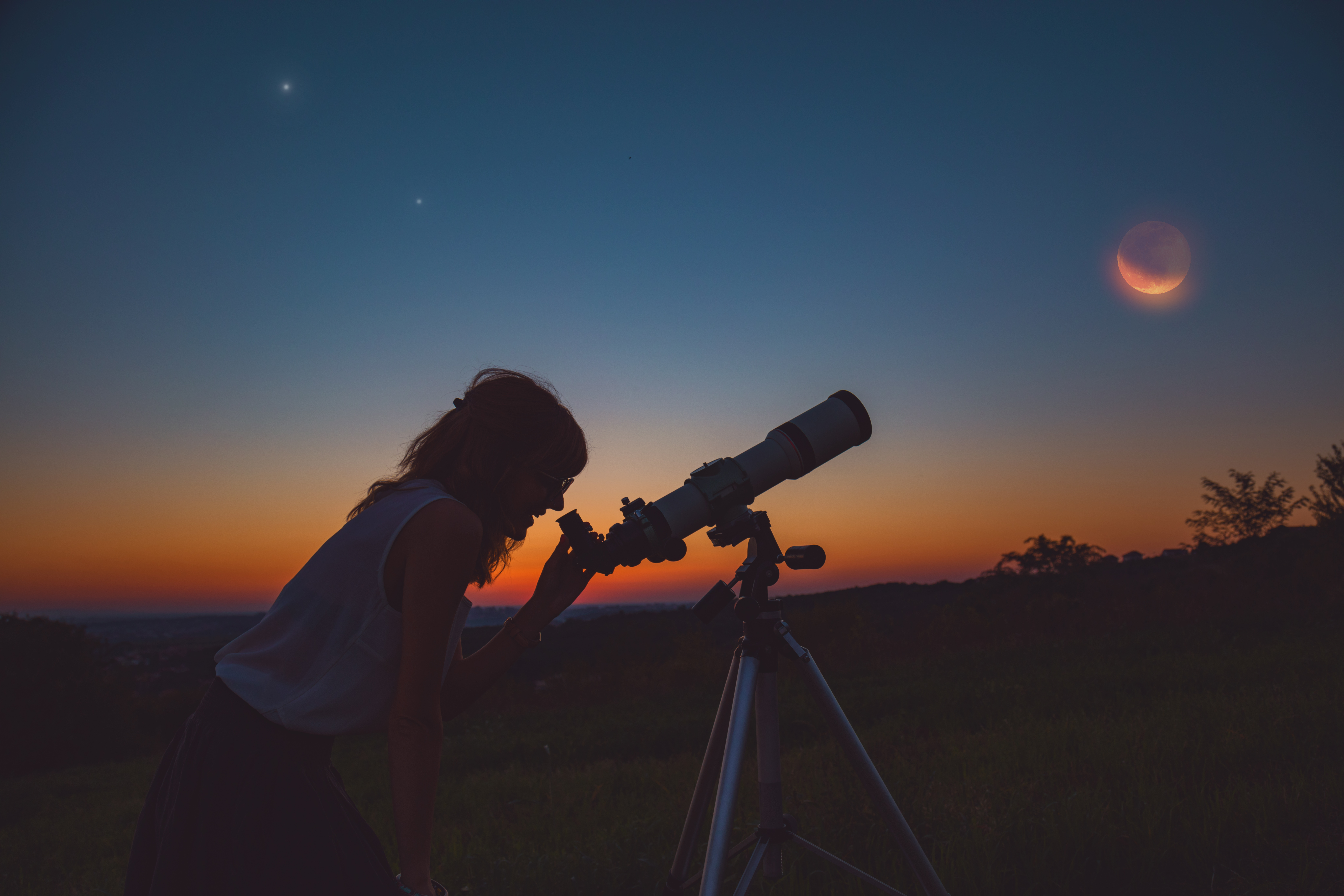
Lunar eclipses offer a spectacular show that nature puts on for us. As we prepare to witness these extraordinary events, it's important to know how to do so safely and to be mindful of the emotional and psychological impacts they may have.
Viewing a Lunar Eclipse
One of the beauties of a lunar eclipse is that it's safe to view with the naked eye. Unlike solar eclipses, which require special glasses, you can watch the moon's transformation directly.
For the best experience, find a spot away from city lights with a clear view of the sky. This will enhance your viewing experience, making the colours and shadows of the eclipse more visible and dramatic. Additionally, consider using binoculars or a telescope to get a closer look at the nuances of the eclipse, such as the varying shades of red and orange that can appear on the moon's surface.
Emotional and Psychological Effects
While there's no need to worry about physical harm from watching a lunar eclipse, you may feel a range of emotions during the event. Embrace these feelings as part of the experience, allowing yourself to fully engage with the wonder of the universe.
The awe-inspiring sight of the eclipse can evoke feelings of awe, curiosity, and even a profound sense of connection with the cosmos. These emotions are a natural response to witnessing the grandeur of our universe in action and can lead to a deeper appreciation for the mysteries and beauty that surround us.
Common Questions and Answers
How Rare Is It to See a Lunar Eclipse?
While lunar eclipses happen multiple times a year, the visibility of a total lunar eclipse from any given location on Earth can be rare, occurring roughly every 2.5 years. However, since lunar eclipses are visible from anywhere on the night side of Earth, they are more commonly observed than solar eclipses.
Does a Lunar Eclipse Affect Humans?
There is no scientific evidence to suggest that lunar eclipses have a physical impact on people. However, many report feeling more emotionally charged or introspective during these events, possibly due to the psychological effects of witnessing such a rare and beautiful celestial phenomenon.
What to Do Spiritually During a Lunar Eclipse?
Spiritual practices during a lunar eclipse vary widely but often include meditation, setting intentions for personal growth, or performing cleansing rituals. It's a time when many choose to focus on letting go of the old to make way for new beginnings.
Can Everyone on Earth See a Lunar Eclipse?
Lunar eclipses are global events visible to anyone on the night side of Earth during the occurrence. Unlike solar eclipses, which are only visible from specific locations, lunar eclipses can be enjoyed by a wide audience across the planet. However, the visibility of specific stages of the eclipse, such as partial or penumbral phases, may vary depending on your geographical location.
Can We Go to the Toilet During a Lunar Eclipse?
In some cultures, there are taboos against performing certain mundane activities, such as eating, drinking, or even using the toilet, during an eclipse, due to the belief that the eclipse carries a negative or purifying energy. Scientifically, there are no restrictions on your physical activities during a lunar eclipse; these beliefs are purely cultural and vary significantly from one region to another.
Can I Sleep During a Lunar Eclipse?
You can sleep during a lunar eclipse. There are no scientific reasons to avoid sleeping, and doing so will not have any adverse effects on your health or well-being. The superstitions that suggest otherwise are part of cultural traditions and folklore, which hold different significance across various societies but do not have a basis in science.
What Are the Emotional Effects of Eclipses?
Many people report feeling a range of emotions during a lunar eclipse, from awe and wonder to a profound sense of contemplation and introspection. Eclipses can magnify emotions and heighten sensitivities due to their rare and visually striking nature. This emotional response is more related to the psychological and spiritual impact of witnessing such a unique celestial event rather than any direct physical effects.
Can an Eclipse Affect Your Mood or Body?
While there's no scientific evidence to suggest that lunar eclipses have a direct physical impact on the body or mood, the event can influence people psychologically or emotionally. The significance placed on the eclipse, either through spiritual beliefs or personal reflection, can affect one's mood or feelings during and following the eclipse.
What Does the Lunar Eclipse Mean in Astrology?
In astrology, lunar eclipses are seen as powerful moments of revelation, change, and accelerated growth. They are often interpreted as bringing hidden emotions or issues to the surface, providing opportunities for release and transformation. The specific impact of a lunar eclipse can vary depending on your astrological chart.
What Is It Called When the Sun and Moon Are in the Sky Together?
This phenomenon is known as a syzygy, referring to the alignment of three celestial bodies. In the context of a lunar eclipse, it specifically describes the Earth, moon, and sun aligning in a straight or nearly straight configuration. This alignment is essential for both solar and lunar eclipses to occur.
Why Does the Moon Turn Red During a Lunar Eclipse?
The moon turns red during a total lunar eclipse due to Rayleigh scattering, the same atmospheric effect that causes sunsets and sunrises to appear red. Earth's atmosphere filters and refracts sunlight, scattering shorter blue wavelengths and allowing longer red wavelengths to pass through and reach the moon.
Is It OK to Be Outside During a Lunar Eclipse?
It's perfectly safe to be outside and observe a lunar eclipse with the naked eye. Unlike solar eclipses, which require protective eyewear to avoid eye damage, lunar eclipses do not pose any risk to observers. It's an excellent opportunity to witness one of nature’s most stunning displays.
Can an Eclipse Give You a Headache?
There is no scientific evidence linking the viewing of a lunar eclipse to headaches or other physical symptoms. Any headaches experienced during an eclipse are likely coincidental or potentially due to staying out late, neck strain from looking up, or dehydration. It's essential to stay comfortable and hydrated while observing celestial events.
Recommended for you!
Best SellersExplore the Universe with Centre of Excellence
Dive into the depths of the cosmos and unlock the mysteries of celestial phenomena with our Astrology Diploma Course and Cosmology Diploma Course.
Why Centre of Excellence?
- Accessibility: We believe knowledge should know no bounds. That’s why we've made our courses affordable, to ensure that everyone has the opportunity to explore the mysteries of the universe.
- Flexibility: Our courses are crafted to fit into your life, not the other way around. Learn at your own pace, on your own schedule, from anywhere in the world.
- Broad Curriculum: Our offerings span a wide range of topics, meeting a variety of interests and curiosities.
- Dedicated Support: Enrolment comes with personalised guidance from our tutors and the chance to join a community of like-minded learners, providing you with support and encouragement throughout your educational journey.
Special Offer
Immerse yourself in the fascinating world of astrology and cosmology with our specially designed courses, now available for an exclusive price of £29.

